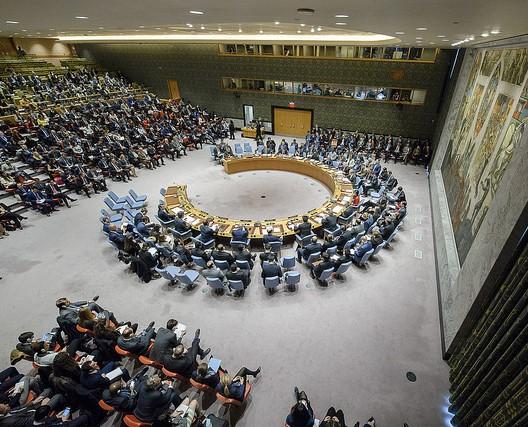As the Democratic Republic of the Congo (DRC) continues to battle an Ebola outbreak in North Kivu and Ituri provinces, the United Nation (UN) Security Council yesterday passed a resolution demanding that all armed rebel groups in outbreak zones respect international law.
The council passed the measure to "ensure full, safe, immediate, and unhindered access for humanitarian and medical personnel, and their equipment, transport and supplies to the affected areas," according to a UN news release.
In adopting resolution 2439 (2018), the UN also officially condemned attacks by armed groups in the region. The resolution was sponsored by Ethiopia and Sweden, and the Security Council said negotiations on the text were influenced by two recent briefings to the council from the WHO director‑general.
The Security Council, made up of 15 UN members, also encouraged the DRC government and countries in the region to "continue efforts to address and resolve the wider political, security, socioeconomic and humanitarian consequences of the Ebola outbreak, as well as to provide sustainable and responsive public health mechanisms," according to a the release.
Evaluating Ebola vaccine in the DRC
Also yesterday, during a session at the American Society of Tropical Medicine and Hygiene's (ASTMH's) annual meeting, Merck's Jakub Simon, MD, MS, presented preliminary findings on the effectiveness of the ring vaccination strategies in DRC's two Ebola outbreaks this year.
In both outbreaks, Merck's unlicensed VSV-EBOV vaccine has been given to health workers, case contacts, and contacts of contacts.
Simon said that, in the first outbreak earlier this year in the western part of the DRC, the introduction of the ring vaccine campaign almost immediately lowered case counts, going from one to five cases per day to zero the day after the vaccine was introduced.
But in the current campaign, which reached 276 cases yesterday, case counts dropped over a 2-month period (though never reaching zero) and then spiked in recent weeks as violence and conflict in the region have limited workers' access to contacts. Throughout the entire outbreak, the vaccine has been deployed.
Though 13 phase 1 through 3 clinical trials have proven the vaccine to elicit a strong immune response and protect against disease, its unknown how useful the vaccine is at ending an outbreak in a conflict zone where workers can have limited access to contacts, Simon said, according to a story in Medpage Today.
See also:
Oct 30 UN resolution
Oct 30 UN press release
Oct 30 ASTMH abstract
Oct 30 Medpage Today story


















